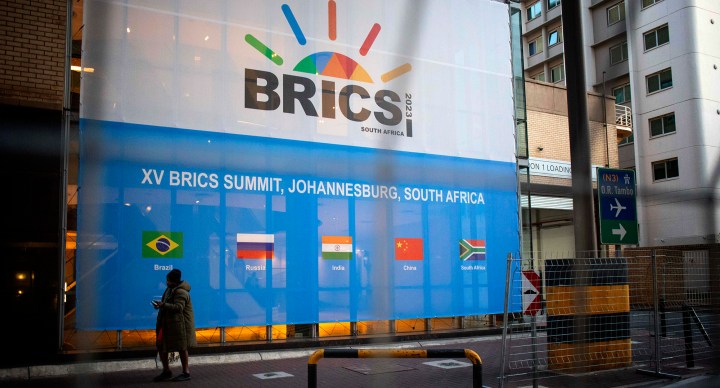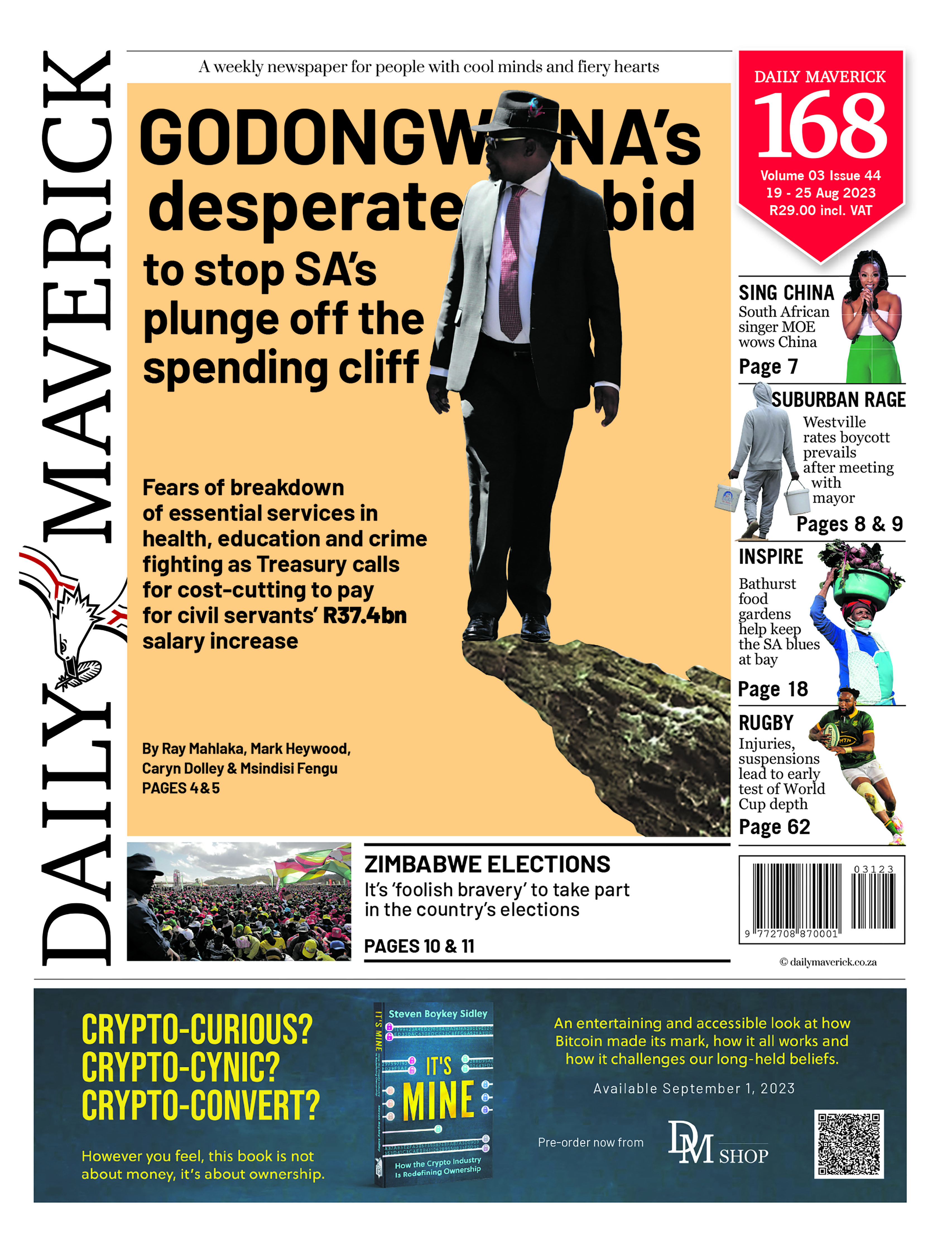THE BUCK STOPS HERE
Trimming reliance on the dollar high on BRICS Summit agenda

About 40 countries have shown an interest in joining the bloc and leaders at the meeting in SA will discuss criteria for new membership and the necessary financial contributions.
When BRICS leaders meet in South Africa on Tuesday, 22 August, high on the agenda will be finding ways to accelerate the use of their countries’ currencies for trade and finance to rely less on the US dollar.
South Africa’s BRICS emissary, Professor Anil Sooklal, is emphatic that there are no plans by the five member countries to embrace “de-dollarisation”, which would involve unseating the dollar as the world’s de facto global currency.
“Replacing the US dollar has never been on the table. We have been talking about deepening trade and interaction among the BRICS local currencies. The dollar will continue to be a major global currency — and that’s a reality,” Sooklal told Daily Maverick.
South Africa will host officials from Brazil, Russia, India and China — the group of five nations known as BRICS — for a summit from 22 to 24 August. Present will be China’s President Xi Jinping, Brazil’s Luiz Inácio Lula da Silva and Indian Prime Minister Narendra Modi.
Russian President Vladimir Putin, for whom an international arrest warrant has been issued for alleged war crimes in Ukraine, will not attend.
The BRICS members want to find more ways to conduct trade and financial transactions between themselves in their currencies as an attempt to amass global influence. Sooklal hastened to add that it was not about challenging the West, but about finding ways for BRICS members to work collectively on a macroeconomic level.
“If you look at the Global South, usually emerging markets, we need to come together collectively to be able to have a strong voice. We were not strong as individual countries. Some are still developing and going through major challenges. Others have grown rapidly. But, collectively, that is what gives us gravitas.
“Countries of the Global South are feeling more confident about themselves. They would like to see changes in terms of how they preserve their sovereignty, how they conduct trade and how they conduct finance,” Sooklal said.
Although the BRICS countries have been seeking to reduce their reliance on the dollar for more than a decade, nothing has come to fruition. But Western sanctions on Russia after its invasion of Ukraine have accelerated the process.
BRICS members have argued that the dollar is volatile, as seen in its wild swings every time the US central bank makes interest rate decisions or there are any signs the US economy is slowing. This volatility creates a financial headache for BRICS members, which have dollar-denominated debt that becomes expensive to service.
Affordability and amassing global influence are the main rationales for using local currencies.
BRICS members want their bank, the New Development Bank (NDB) (formerly BRICS Bank), to execute their currency diversification goal. They want the NDB to target a third of its lending to be in domestic currencies by 2026. Since its launch in 2014, 23% of the NDB’s total approved loans worth $33-billion have been in local currencies, mostly Chinese yuan.
Another item on the agenda at the summit is the creation of a joint BRICS currency, which Sooklal said was still in the early phases and would take a long time to develop. BRICS has been criticised for even considering the creation of a common currency for five vastly different and divergent economies. Among the critics are former Goldman Sachs economist Lord Jim O’Neill, who coined the BRICS acronym in 2001. O’Neill told the Financial Times creating a common currency would be unfeasible.
“It’s just ridiculous… They’re going to create a BRICS central bank? How would you do that? It’s embarrassing, almost.”
He said BRICS had achieved nothing since members first started meeting.
BRICS leaders will also discuss opening up membership to other countries.
About 40 nations have shown interest in joining the bloc, either formally or informally, according to South Africa’s government. They include Saudi Arabia, Argentina and Egypt.
“Expansion is a natural progression. We cannot shut the door to the large number of countries that want to be part of BRICS,” Sooklal said.
Criteria for admitting countries and their contributions to the BRICS bloc will be discussed. DM
This story first appeared in our weekly Daily Maverick 168 newspaper, which is available countrywide for R29.



















Comments - Please login in order to comment.